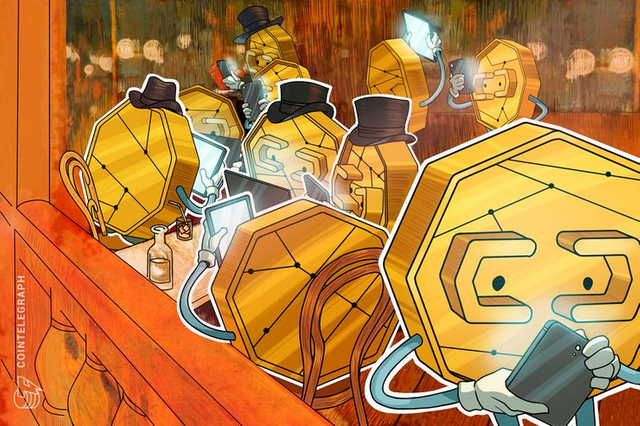One of the Main Barriers in the Adoption of Cryptocurrencies


Since 2017, there has been a significant increase in the adoption of cryptocurrencies, especially by sectors of the population not so technologically-inclined. This may be due to the amount of exposure that it has received in social media in the last year, at the same time that the price boom and the FOMO produce a snowball effect.
Even Grandma knows about Bitcoin...
While cryptocurrencies are currently a subject that most are aware of, how much of that awareness has been translated into true adoption?
I would say very little, and the reason is that cryptocurrencies have several barriers to entry for the average user. In my opinion, the main one is the User Experience. People don't understand how to use cryptocurrencies and therefore distrust or simply refrain from using them.
It doesn't matter if these people are aware or not of how the central banking systems work, the fractional reserve system, the issuance of fiat money, and the problems it cause to the global economy, problems that affects the average person the most by the way, and that cryptocurrencies offer an alternative (still at a very early stage) to these systems of centralization, control and enrichment of few at the expense of many.
It doesn't matter, huh?
Well, at least not in terms of adoption. What is needed is to make cryptocurrencies so easy that even grandma can use them, instead of selling the red pill speech we must appeal to the advantages offered by cryptocurrencies in the daily use cases, such as being able to send money directly from anywhere in the world in seconds, without intermediaries or high commissions, privately if you need or want to, to populations without access to banking, etc.

And this is where we return to the user experience.
Having all these advantages I am sure that many more can benefit from the use of cryptocurrencies, but when you present the technology to average users they have to deal with concepts that can be intimidating at first: what are public and private keys, what is a seed, how to keep a wallet safe, what is blockchain. Even just the name CRYPTOcurrencies can be intimidating for many.

The thing is that an average user shouldn't have to know all this to start using cryptocurrencies safely. While to use them to the fullest and realize their full potential in terms of security, decentralization and privacy, you must be at least familiar with some concepts, this barrier shouldn't exist for the user who simply wants to make a quick and cheap transfer to a friend, or make an online purchase with crypto because he doesn't have a credit card for example.
Most don't know how bank databases work nor how transactions are handled, but that doesn't stop us from making transfers and using debit and credit cards. The same should apply for cryptocurrencies, with the difference that if you want to go further you can do it (not as with traditional systems that limit you and with which you must trust in third parties).
The reality is that most are not ready to take full responsibility (and control) into their own hands. We have become accustomed to entities, companies and websites managing and safeguarding our assets and data, being able to recover passwords with a click on "I forgot my password". And that's not bad either, although it may result in hacks, exposure of keys and private data or even bank fraud and embezzlement, too big to fail do you think? "I can trust institutions"... Does the name Lehman Brothers sounds familiar to you?
Many prefer to place their trust in third parties instead of dealing with their own safety, and that's completely understandable since it is the easiest and being your own guardian can also result in almost all of the above.

So what is needed for mass adoption?
In my opinion, an easier entry point for new users. This translates into more friendly applications with more familiar interfaces, which provide the facilities of traditional systems but with some of the advantages of the decentralized world.
Although the decentralized apps offer many features that can't be obtained in traditional apps, the road to a true mass adoption begins with ease of use. It is also quite obvious that it is not necessary for everything or for everyone the use of dapps.
Currently there are several projects working on the user experience, and it is something where there's still a lot of room for improvement.
I think that the decentralized services, from apps to exchanges, will eventually take a bigger part in the game, because that's the way for a really decentralized economy (especially the part about of exchanges). But you know, we must learn to walk before we can run.

If you haven't registered for our airdrop, now is the time.
Guess what? Our BlockToken airdrop is extended until the 31st of October.
BlockToken is undertaking a massive 15 million token Airdrop!
We are preparing to roll out the next-gen EOS based token issuance platform and are rewarding the community to register for free BLT Tokens.
For more information checkout our website at https://blocktoken.ai/airdrop
Register now! See you there!
Congratulations! This post has been upvoted from the communal account, @minnowsupport, by angelgarz from the Minnow Support Project. It's a witness project run by aggroed, ausbitbank, teamsteem, someguy123, neoxian, followbtcnews, and netuoso. The goal is to help Steemit grow by supporting Minnows. Please find us at the Peace, Abundance, and Liberty Network (PALnet) Discord Channel. It's a completely public and open space to all members of the Steemit community who voluntarily choose to be there.
If you would like to delegate to the Minnow Support Project you can do so by clicking on the following links: 50SP, 100SP, 250SP, 500SP, 1000SP, 5000SP.
Be sure to leave at least 50SP undelegated on your account.